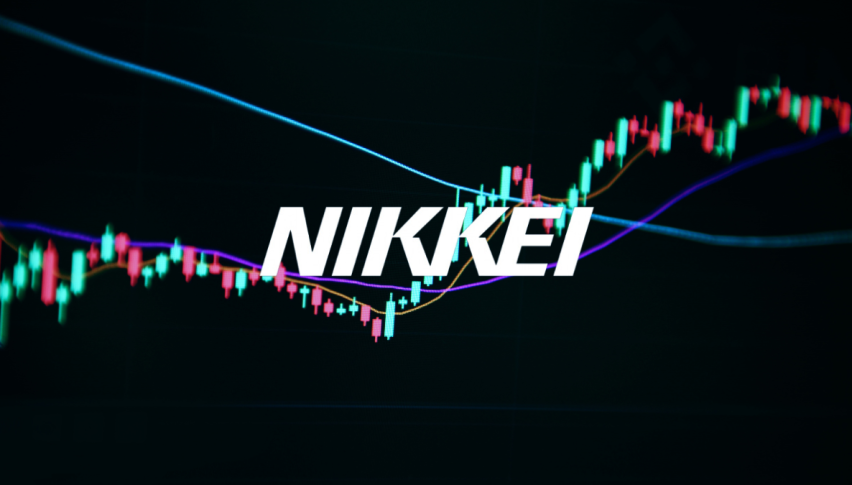Preliminary data for GDP growth showed a decline in output, while a weak yen puts pressure on the BoJ to hike rates.

- Sharp drop in GDP preliminary data
- Private consumption rises
- A falling yen adds inflationary pressure
The NIKKEI225 opened lower today, trading down 0.80% at the time of writing. The markets received preliminary data for GDP Growth Q3, which YoY showed a drop to 0.9% from 2.2% for Q2.
Private Consumption preliminary data showed a counter trend and increased from 0.7% for Q2 to 0.9% for Q3. Whereas Industrial Production YoY contracted by 2.6% in September, slightly less than forecasts of -2.8%.
With this scenario of a weak economy, the declining yen is creating inflationary pressure from imports. The USD/JPY is hovering around 156 and getting closer to 160 threshold, where policymakers tend to intervene.
The yen benefits from FX intervention, whether it’s rate hikes or BoJ buying. However, the stock market tends to suffer in either case when intervention happens.
A lot will depend on how the central bank perceives imported inflation risks, and how much political pressure is applied to defend the yen.
NIKKEI225
Bank of Japan Policy
The Bank of Japan Chief Ueda will give a speech on Monday and the market will be watching closely for hints of a rate hike. The next BoJ policy meeting is December 18-19, and analysts believe the BoJ chief may want to prepare the market for a possible hike at the next meeting.
While the NIKKEI225 has lost 1.3% so far this week, the BoJ wants to avoid a possible stock market rout due to further monetary policy tightening. The presumption is that giving some forward guidance may help alleviate volatility.
For the meantime, tightening talk is sending yields higher. The last auction for 3-month T-bills and 5-year JGBs showed increased yields for both.
The 3-monthT-bill average yield rose to 0.128% from 0.026% and 5yr JGBs rose to 0.706% from 0.562%. This helps the yen somewhat, but yields in the US curve are also increasing as the market perceives higher inflation risks.
For stocks, higher bond yields will make stocks less attractive. Investors have had over 8 years of negative interest rates and yields. Yield increases are likely to drive investment from stocks and into fixed income.
The NIKKEI225 will face stiff competition from rising yields when asset managers and institutional investors make their portfolio allocations.















